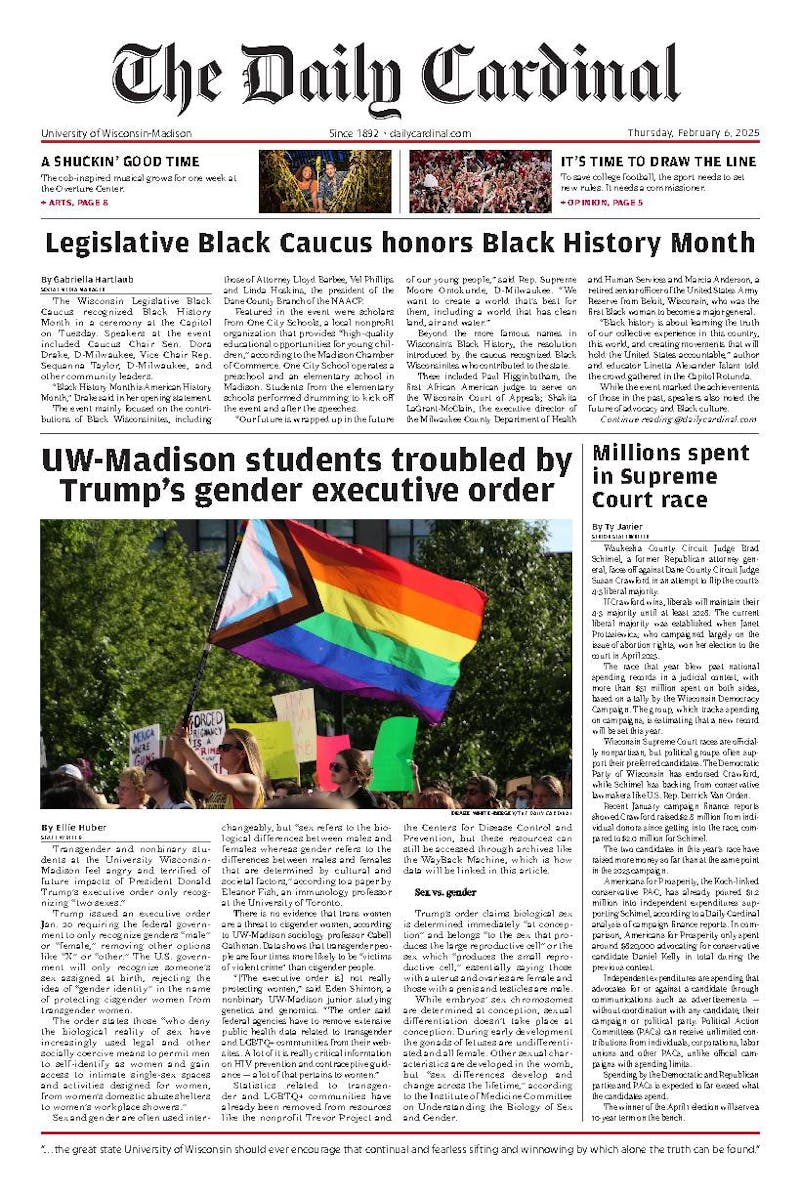Dear Editor,
This is not the time or place to debate in detail the accuracy and validity of the Center for Equal Opportunity's report alleging ""discrimination"" in the UW-Madison's admissions policies, procedures and outcomes. It is important, though, to state now that the technical merits of the report are potentially dubious, and that doubts about the results will not be resolved until close examination of the data and analyses by expert social scientists is undertaken and completed. A critical response to this report is not, as Ms. Chavez would have it, ""dishonest and thuggish."" It is imperative.
It also must be stated that the CEO's interpretation of its statistical results, even if those results were to survive scrutiny, are debatable. What constitutes ""discrimination"" is a matter of complex moral, historical, and empirical considerations that the CEO has grossly oversimplified in its rhetoric of ""color-blindness."" So, too, the idea of academic ""qualification"" is complex, and cannot be reduced to the very few indices of qualification, albeit important ones, that CEO included in its analysis.
With respect to the actions of those protesting at the Doubletree and at the debate at Union South, we need to remind ourselves that the CEO is not engaged in an academic discussion. It is using its considerable power and resources to attack and attempt to dismantle the policies that make possible the attendance of a pitifully small number of students of color at the University of Wisconsin-Madison. Make no mistake, the actions of the CEO, if successful, will close the door on the opportunities that many of the protesting students were seeking to defend.
We do not need to impute ""racist"" motives to Mr. Clegg to recognize that he was not here simply to share his results with our academic community, and to engage in the niceties of debate. He was here to incite opposition to the UW's policies and procedures.
During the press conference, he explicitly encouraged action by the governor to use his power of appointment to the Board of Regents to end UW's present policies and practices. He held up the specter of lawsuits. I cannot recall if he explicitly encouraged legislative action, but already State Representative Stephen Nass, who chairs the committee charged with higher education policy, has announced his intention to initiate legislative hearings into UW-Madison's admissions policies and procedures.
Finally, Ms. Chavez takes at face value, and further publicizes, the Doubletree's manager's description of what occurred at the hotel. The press release issued by the Doubletree described the large group of student protesters as a ""mob"" that ""became increasingly physically violent when forcing themselves into the meeting room where the press conference had already ended."" And, it alleged that ""staff were then rushed by a mob of protesters, throwing employees to the ground.""
I attended the press conference, and was in the main lobby of the hotel afterward. There was no ""mob"" that was ""physically violent."" There was an organized group of protesters whose loud chanting forced an end to the press conference, and which attempted to enter the conference room after the doors were open. Two hotel employees attempted to physically prevent the group from entering the room, and the group pushed through them. Members of the group attempted to confront Mr. Clegg, and made his exit difficult. Some followed him as he headed toward what I presume was the elevator bank. While this experience was clearly unfamiliar and unnerving to Doubletree staff, for the manager and Ms. Chavez to depict what occurred as the actions of a ""mob"" is an egregious slur on the students. While the protest may well have broken decorum, its well-motivated participants do not deserve to be characterized as a ""mob.""
Michael Olneck is a Professor Emeritus of Educational Policy Studies and Sociology at UW-Madison. Please send all feedback to opinion@dailycardinal.





